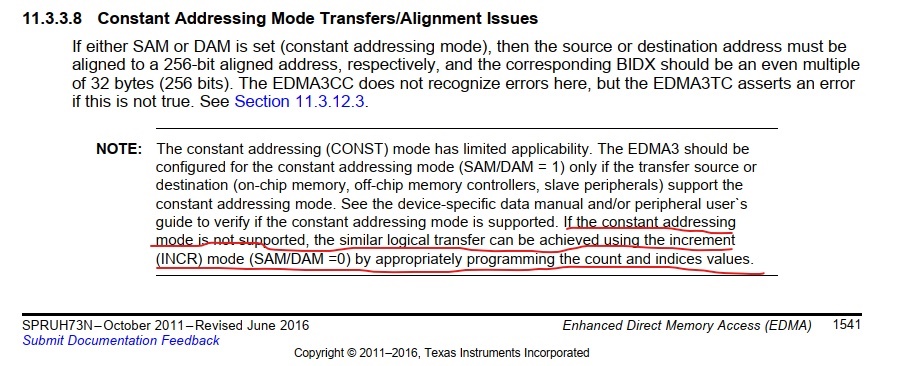Tool/software: TI-RTOS
Hi
I want to read FPGA data through EDMA.
The source data is a FIFO, that is to say, unchanged address.
How should I set the parameters of EDMA?
in the technical manual of AM3352, I found this passage
NOTE: The constant addressing (CONST) mode has limited applicability. The EDMA3 should be
configured for the constant addressing mode (SAM/DAM = 1) only if the transfer source or
destination (on-chip memory, off-chip memory controllers, slave peripherals) support the
constant addressing mode. See the device-specific data manual and/or peripheral user`s
guide to verify if the constant addressing mode is supported. If the constant addressing
mode is not supported, the similar logical transfer can be achieved using the increment
(INCR) mode (SAM/DAM =0) by appropriately programming the count and indices values
it means I can program the count and indices values to solve my issue.
I tried to set the srcbidx and srccidx to 0,but it failed.
can you give me some suggestions?
my PDK version is pdk_am335x_1_0_13.
BR



